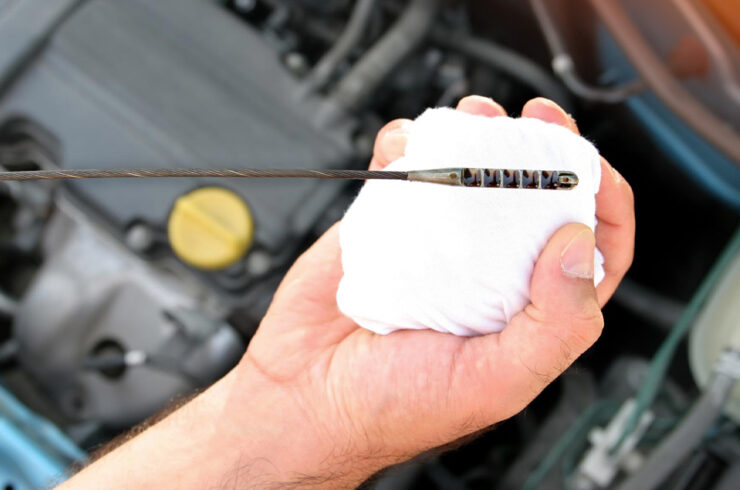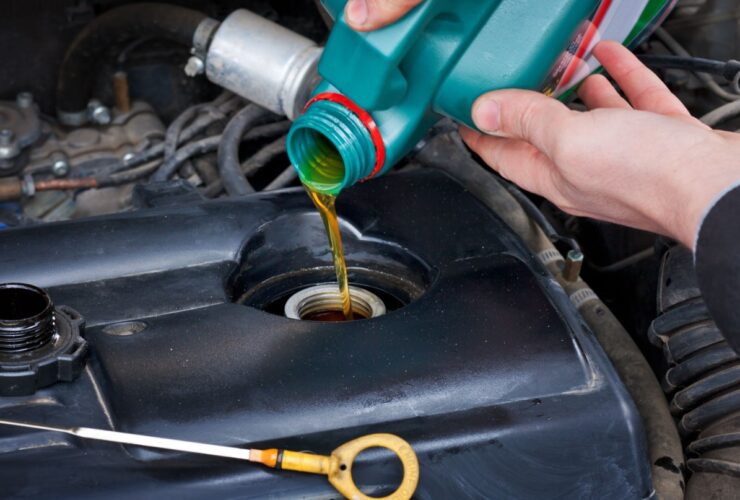Vehicles have become an essential part of our lives, and among which cars cover a significant section of vehicles in use. The users need to ensure that their vehicle works in the best state, and for the same, they must take care of their engine. Various checks would ensure that your engine keeps working at its best.
So in this article, we will discuss one such assessment known as oil change and how long does an oil change take?
Signs That Your Car Needs Oil Change

The best way to check for the perfect signal is to tell you that it is when you must change your vehicle oil for enhanced efficiency. Various companies contribute to making the odometer so that users can monitor the overall oil usage of their car and then change the oil when needed. Some red flags will let you know that this is the time for cleaning-
• Users can feel the stinking smell of oil in a car, which tells them it is time to refill.
• When oil gets dirty with different impurities, the engine cannot work at its maximum efficiency, and you might hear a clunking noise from the engine.
• The car’s mileage will decrease, and you will notice that you will have frequent visits to the fuel station.
Oil provides lubrication to the engine’s inner parts, which ensures no friction between them, but when oil becomes impure, then friction between the parts increases, resulting in loud clanging noise.
How Long Does It Take To Change The Oil?

The interval of changing oil entirely depends on the usage of the vehicle; if you are using your vehicle more frequently, then you need to get the oil changed pretty often.
So it is believed that the best way to measure oil change is to be done via the distance traveled by the vehicle. The removal and refilling of fuel take from 25-40 mins depending on the type of car and the mechanic itself.
Various drain plugs are placed inside the car, making it easier for users to drain out all the impure oil from the car at once. In some cars, the drain plugs are missing and the mechanic needs to remove oil manually which is a cumbersome and time taking process.
Process Of Oil Changing

The process of changing fuel is categorized basically into four major stages. These stages are discussed below-
1. Change
Various drain plugs are placed inside cars, making it easier for users to drain the entire oil inflow at once, but some cars lack these plugs, so technicians need to locate the oil pipe and then extract fuel in a box or empty vessel. This dirty oil has to be packed and then disposed of carefully.
2. Clean
This is a thorough process in which either a vacuum or oil cleaner is used to clean the stains of impure oil; some technicians clean your entire car in this process, which enhances the car’s overall look.
3. Other Components
When the technician changes the oil, he needs to look for other engine components and provide overall engine servicing to enhance efficiency. So you must check the following components of the engine before you proceed to refill your oil box.
• Coolant level in the engine to prevent overheating of the engine.
• Air filtration hose to ensure that fresh air moves through the pipelines.
• Brake fluid level, ensuring that your brakes are in the best condition.
• Water level for wipers.
• Battery level to ensure the working of lights and horns.
• Lubrication of screws on tires.
4. Refill Oil
You can choose the oil most efficient for your engine then the technician will refill the oil in such a manner that there are no air bubbles in the pipeline. You must also look for other components while refilling oil.
• Tire pressure and transmission fluid.
• Condition of airbags and battery water.
• Power steering and brake fuel.
Once users have followed all these steps, then, as per the protocol, the technician places a slip on the front mirror of the car, which contains the date of the subsequent servicing of cleaning.
Some users state that lube shops accelerate the process of oil changing, whereas regular repair shops take a considerable amount of time. The primary reason for the same is that lubricant shops are focused mainly on changing oil, so they chain up the entire process for the most efficient results. In contrast, repair shops check a series of other components to better your engine. So repair shops are better for the maintenance of your engine.
If you plan to change your vehicle oil yourself, it can be a grave decision because this is a highly complex process and requires some professional experience. So you can try it for fun and save some money, but if you want your engine in the best condition, it’s suitable to leave this task to the professionals.
What Type Of Oil Do You Need?

There are various types of oil and the amount you should use to ensure that your vehicle stays in the best condition. The default values for the amount and type of oil are specified in the user manual, but you can also rely on technicians’ advice for the type of oil that would be most suitable for your vehicle. Three types of oil are used in vehicles.
1. Conventional Oil
This oil was used in old vehicles as it provides a smooth state of your vehicle but does not yield high efficiency.
2. Synthetic Oil
This oil is better than conventional oil as it is efficient, temperature resistant, and even prevents engine breakdown, which is a savior.
3. Synthetic Blend Oil
Synthetic oil is expensive, so blended turns out to be a great and affordable alternative.
FAQ
How often should I change the oil in my car?
The interval for changing oil entirely depends on the usage of the vehicle. If you are using your vehicle more frequently, then you need to get the oil changed pretty often. It is believed that the best way to measure change is to be done via the distance traveled by the vehicle.
How long does an oil change take?
The time taken for an oil change depends on the type of car and the mechanic itself. Generally, the removal and refilling of oil takes from 25-40 minutes.
Can I change myself?
Changing oil in your car is a highly complex process and requires professional experience. It is recommended to leave this task to the professionals.
What are the signs that my car needs an oil change?
Some signs that your car needs an oil change include a stinking smell in the car, dirt with impurities, a loud clanging noise from the engine, and decreased mileage.
What are the types of oil used in vehicles?
There are three types of oil used in vehicles: conventional, synthetic, and synthetic blend.
Why is changing the oil important for a car?
Changing the oil for your car enhances its product life and makes it work smooth. It ensures that the engine’s inner parts are lubricated, reducing friction between them, which enhances the car’s overall efficiency.
Can I change the oil in my car myself?
Yes, you can change the oil in your car yourself if you have the necessary tools and experience. However, it’s important to follow the correct procedures and use the right type and amount for your vehicle. If you’re not confident in your ability to change yourself, it’s best to take your car to a professional mechanic.
How often should I change?
The frequency of oil changes depends on several factors, including the make and model of your car, your driving habits, and the type of oil you use. Most car manufacturers recommend changing every 5,000 to 7,500 miles, but this can vary. You should check your owner’s manual or consult with a mechanic to determine the appropriate change interval for your car.
Can I use synthetic oil in my car even if it requires conventional?
Yes, in most cases, you can use synthetic in your car even if it requires conventional oil. Synthetic provides better performance and protection than conventional, and it can often be used in place of conventional without any problems. However, it’s always best to consult your owner’s manual or a mechanic to confirm.
Conclusion
Changing the oil for your car enhances its product life and makes its working smooth. If these checks are not performed timely on your vehicle, then it would have adverse effects on its working, which include a significant decline in the efficiency of your vehicle and clunking noise from the engine.
Some users also complain of a stinking smell if the vehicle doesn’t receive proper cleaning and maintenance.
Related Posts:
- How Long Does It Take to Rotate Tires? - Saving Time…
- How Much Oil Does A 6.7 Cummins Take - Capacity,…
- How to Change the Battery in a Lexus Key Fob - Quick…
- What Does Oil Can And Wrench Light Mean - Decoding…
- 6 Common Toyota Tundra Leveling Kit Problems 2024 -…
- 10 Best Shocks for Toyota 4runner Reviews - Take…













